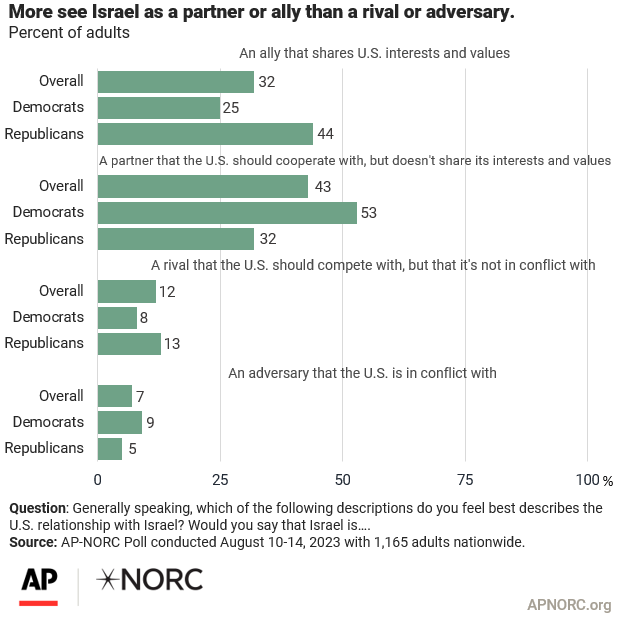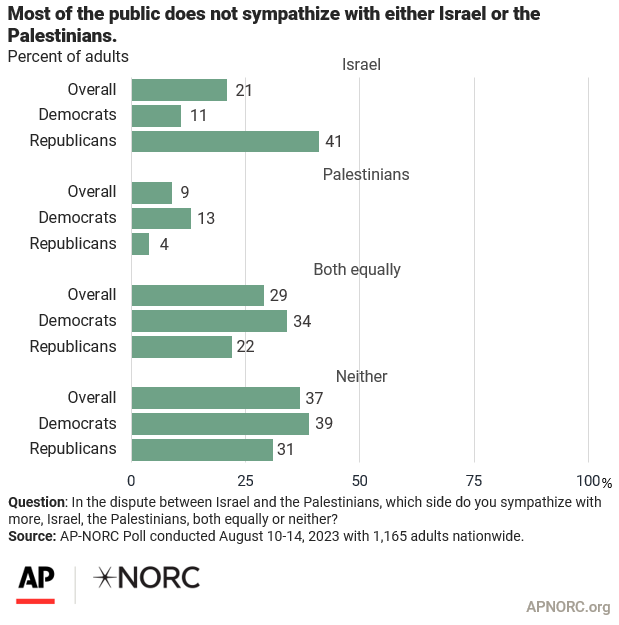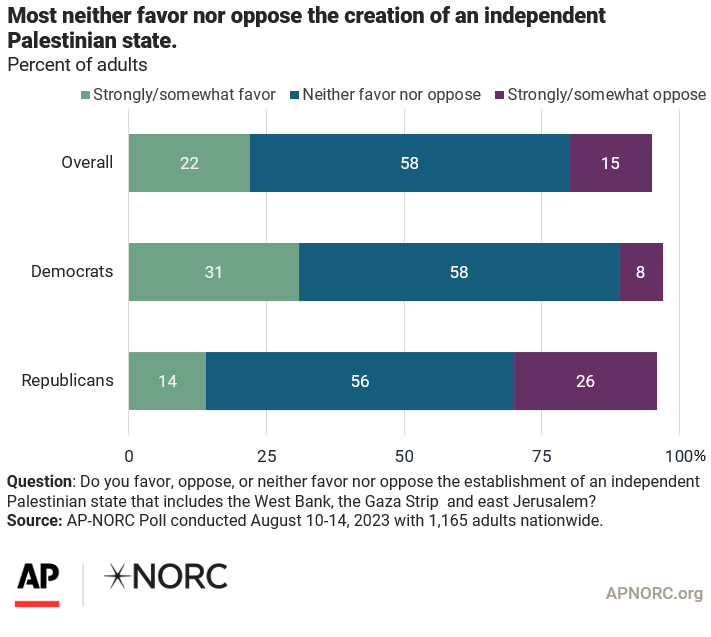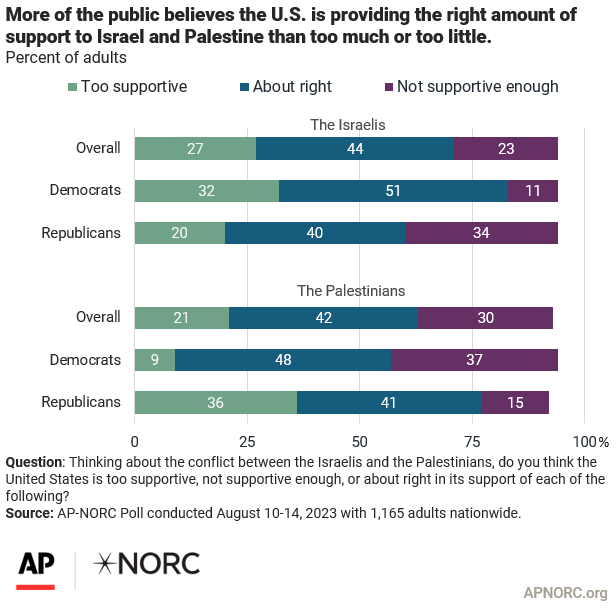
September 18, 2023
The public views Israel as more of a friend than a foe, but they are divided on whether Israel is a country with which the United States shares common interests and values. Most adults do not sympathize with one side over the other in the dispute between the Israelis and the Palestinians and less than half have an opinion either positive or negative about creating an independent Palestinian state. About 4 in 10 say the United States is providing the correct amount of support to the Israelis and nearly the same number also regard the level of U.S. support for Palestinians as appropriate.
Forty-three percent of adults describe Israel as a partner that the United States should cooperate with but say the country does not share U.S. interests and values. One-third of U.S. adults consider Israel an ally that does share U.S. interests and values. Republicans are more likely than Democrats to describe Israel as an ally with shared interests, while Democrats are more likely to regard Israel is a partner with whom the U.S. needs to cooperate.

In the dispute between Israel and Palestine, the public is more likely to not sympathize with either side (37%) or sympathize with both sides (29%) than to choose one side over the other. Four in ten Republicans sympathize more with Israel, far greater than the 4% of Republicans who feel more sympathy for Palestine. Much smaller percentages of Democrats sympathize more with each side, 11% for Israel and 13% for Palestine. Democrats are most likely to feel sorry for neither side.

Few adults have strong opinions on the establishment of an independent Palestinian state. Most, 58%, neither favor nor opposes the establishment of an independent Palestinian state that includes the West Bank, the Gaza Strip, and east Jerusalem. Yet slightly more favor an independent Palestine that includes those territories than oppose it, 21% vs. 15%.
Majorities of both parties have no opinion on an independent Palestinian state. Still, Democrats are twice as likely as Republicans to support an independent Palestine that includes the West Bank, Gaza Strip, and east Jerusalem, while Republicans are three times more likely than Democrats to oppose it.

Similar percentages of the public, just over 40%, believe that the U.S. is providing about the right among of support to the Israelis and to the Palestinians.
Among both Democrats and Republicans, more believe that the U.S. is providing the right amount of support to both Israel and Palestine than either too much or too little. However, Democrats are much more likely to think the U.S. is not supportive enough of Palestine compared to Israel, while Republicans are much more likely to believe the opposite.

When it comes to President Biden’s handling of the conflict, 61% of adults disapprove. That is up from the 56% disapproval rating he received in an AP-NORC poll taken in June 2021. That number is also slightly higher than the percentage of people who disapprove of Joe Biden’s job performance overall (57%) or his handling of foreign policy in general (56%).
The nationwide poll was conducted August 10-14, 2023 using the AmeriSpeak® Panel, the probability-based panel of NORC at the University of Chicago. Online and telephone interviews using landlines and cell phones were conducted with 1,165 adults. The margin of sampling error is +/- 3.8 percentage points.
Citation: AP-NORC Center for Public Affairs Research. (August 2023). “Few hold strong opinions about the ongoing conflict between Israel and Palestinians” https://apnorc.org/projects/few-hold-strong-opinions-about-the-ongoing-conflict-between-israel-and-palestinians/






